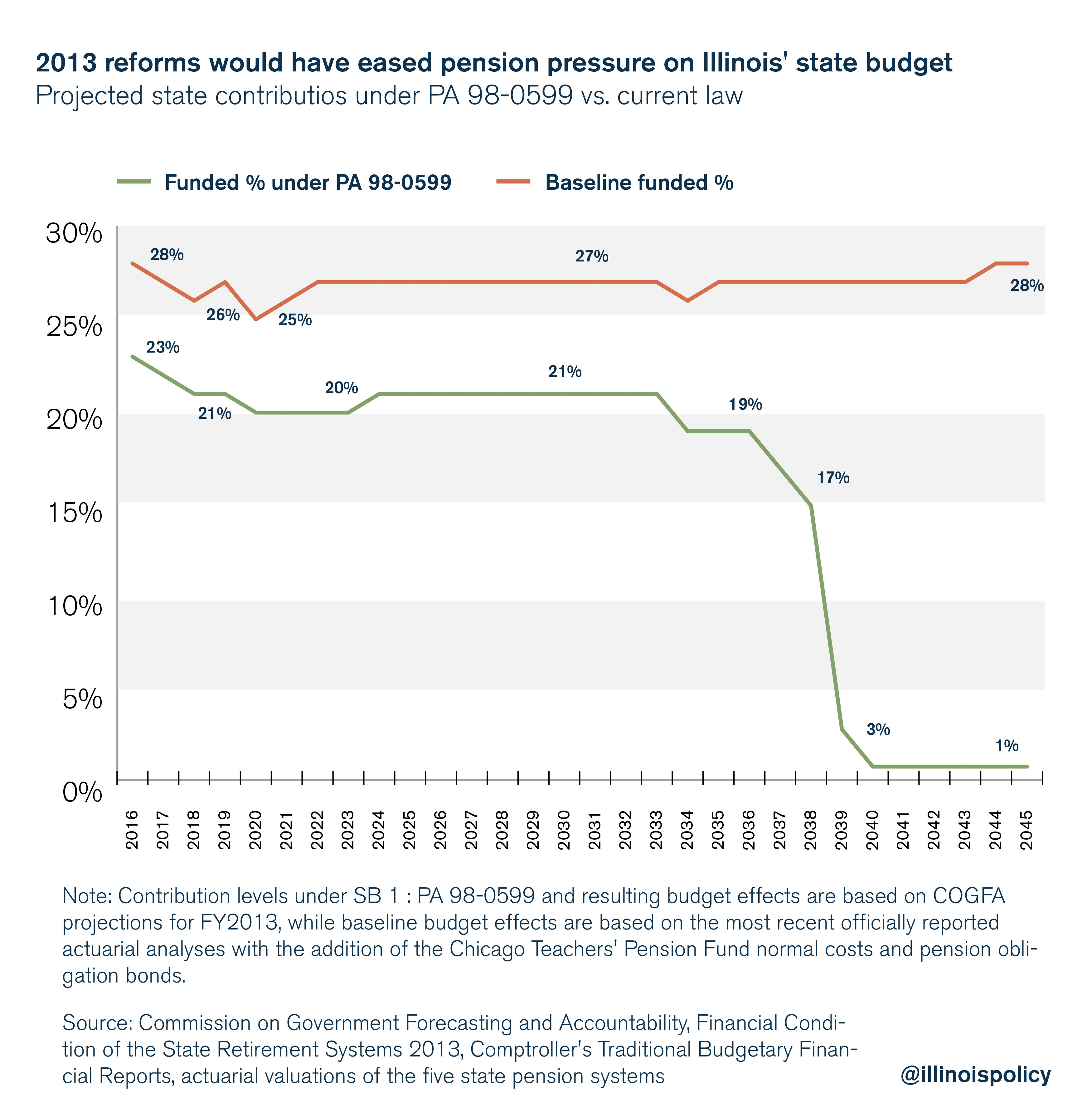Arizona voters show Illinois the path forward on pensions
For the second time, Arizona voters approved a constitutional amendment allowing changes to unearned future pension benefits.
As other states move forward with much-needed, bipartisan pension reform, Illinois is letting its pension problem grow larger by the day. The latest state to enter rehab? Arizona.
In the 2018 midterm elections, Arizona voters approved Proposition 125 allowing for changes to pension benefits for government employees. This marks the second time voters have approved such a change, after Proposition 124 was approved with more than 70 percent voting “Yes” in 2016. Arizona has constitutional protections for pensions that are similar to Illinois’ pension clause, preventing pension benefits from being diminished or impaired.
Proposition 124 applied to the pensions of public safety employees, while Proposition 125 extended the reform to cover the pensions of corrections officers and elected officials. Both measures were intended to reduce the state’s unfunded pension liabilities, and the proponents of Proposition 125 project it will save taxpayers $275 million over time, according to KGUN9.
Arizona’s reform measures can serve as a model for solving Illinois’ worst-in-the-nation pension crisis.
True cost-of-living adjustments, not automatic raises
A key component of Arizona’s reform was the transition from “permanent benefit increases” to cost-of-living adjustments, or COLAs, tied to inflation.
COLAs are supposed to work exactly as the name implies. Because the “cost of living” increases over time, pension benefits should increase in proportion to those federal Bureau of Labor Statistics inflation numbers. That maintains the purchasing power of pensioners during the course of retirement.
In Illinois, most government retirees get guaranteed 3 percent compounding benefit increases for life. State law and typical political discourse incorrectly refer to these post-retirement raises as “COLAs.”
Moving to true COLAs, by tying post-retirement benefit increases to some measure of inflation, was part of a reform effort that passed Illinois’ General Assembly in 2013 but was struck down by the state’s Supreme Court in 2015. Had the reforms survived, they would have reduced the state’s 2016 pension contribution by $1.2 billion and put the state on a path toward a sustainable and affordable pension system.

A recent report from the Illinois Policy Institute details one type of constitutional amendment that could be used to implement part of the 2013 reforms: Creating a distinction between already earned benefits, which should be protected, and the future growth of benefits, which should be open to change.
Arizona did things differently, by creating constitutional exemptions for particular legislation, as Proposition 125 did by referencing Senate Bill 1442 and House Bill 2545. The downside of this approach is that it does not give lawmakers the financial flexibility needed to handle unexpected budget pressures in the future.
Regardless of the legal mechanism, Illinois desperately needs meaningful pension reform that raises retirement ages for younger workers, caps the maximum pensionable salary, and replaces permanent benefit increases with true COLAs. And going forward, new employees should be enrolled in a system that is predictable, sustainable and affordable, such as 401(k)-style personal accounts.
The alternative is a future in which state and local governments ask taxpayers to pay more for less, calling for tax hikes while cutting services to pay for pensions. This is already happening in cities including Harvey, Peoria, Rockford, Jerome and Chicago, just to name a few.
Arizona is one of several states that have chosen to tackle their pension problems. Illinois must follow suit now, before it is too late.